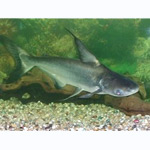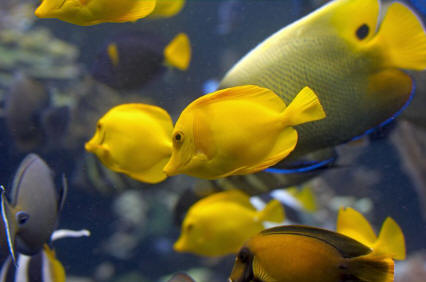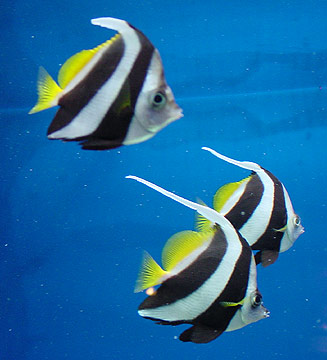Hi Fin Pangasius

|
Scientific Name: Pangasius sanitwongsei Price: Upon Request Origin: Thailand Family: Pangasiidae (Shark catfishes) NOT AVAILABLE NOW |
|
Other Names: Giant Pangasius, Chao Phraya Giant Catfish, Pla Tepa, Emperor ID Shark, Hi-Fin Shark, Hi-Fin Bull Shark, Pangasius beani |
|
Technical Info
Temperature: 24 - 28 ℃
pH: 6.8 - 7.3
GH: 8 - 10
Max size: 300 cm
Min Tank size: 2000 Ltr
Position in Aqua: No special swimming level
Description
They are difficult fish to care for, despite their being easy to acquire. They grow very large, and easily outgrow even large tanks. As they are fairly active swimmers, they need a lot of open space in their tank. Floating plants seem to reduce this fish s nervousness, as they provide shade. Bright lighting is unnecessary and even harmful, as it will make the fish skittish. The iridescent shark can be purchased in an albino form and an artificially dyed form. The dyeing process is very harmful to the fish and should not be supported. These fish can be quite nervous are easily spooked, and have very bad eyesight. Not recommended for home aquaria because of the large size they attain.
Food
It s omnivorous, but is primarily a meat-eater. In nature adults are known to be particularly fond of whole dog carcasses!
Breeding
Adults are too large to breed in a home aquarium setting.
Compatible with
Not an aggressive species, but much smaller tankmates will likely be consumed. It can also bother sedentary or shy companions with its constant activity, but conversely is easily intimidated by aggressive or boisterous species. The best choices are large, peaceful benthic and mid to upper water shoaling species. Doradids such as Oxydoras niger , Megalodoras urunoscopus or Pterodoras granulosus are ideal, as are Pacu or many larger cyprinids.
Note
300cm and up to 300 kg in weight! Although it rarely reaches this size in captivity, it s easily capable of topping 120cm. Iridescent sharks are schooling fish that prefer to be kept in groups of 5 or more.

